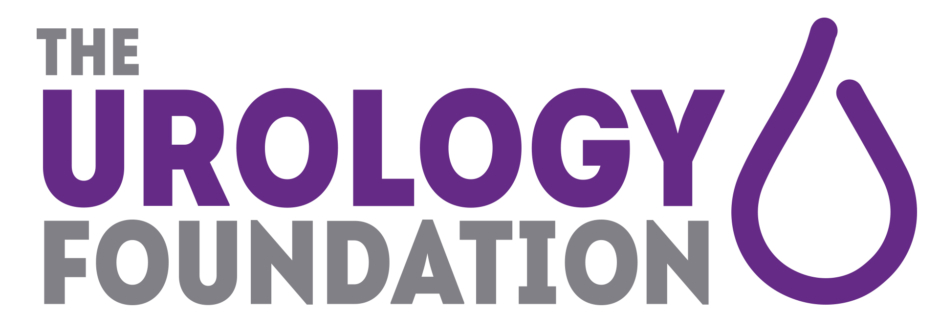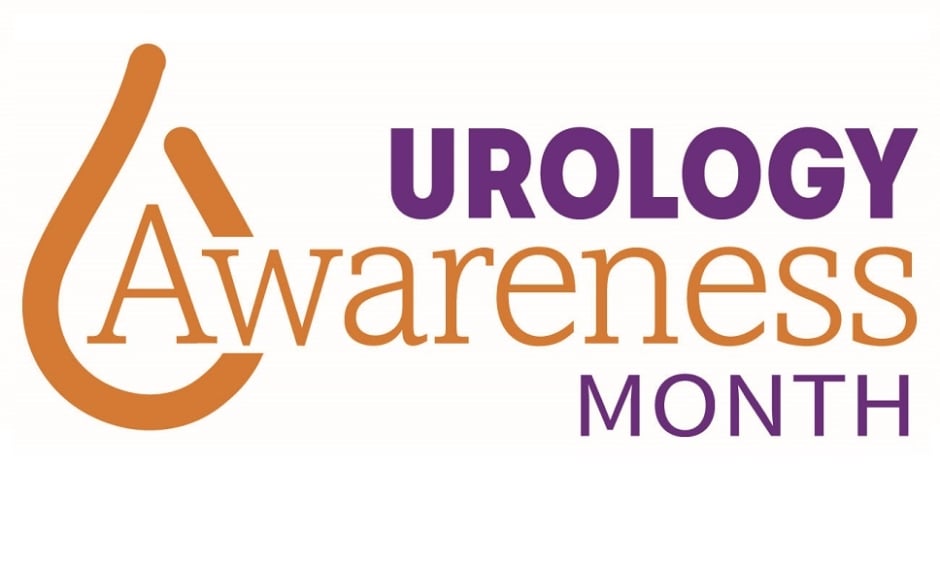Written by James Coker | Reporter, European Medical Journal | @EMJJamesCoker
![]()
 Urological conditions are becoming increasingly prevalent in the modern era, which can largely be attributed to an increasingly ageing population and lifestyle factors; indeed, it is estimated that one in two people in the UK will be affected by a urological ailment during their lifetime.1 Although in recent years there has been a big emphasis on highlighting urological conditions and encouraging greater awareness of them, particularly amongst men, much more still needs to be done in regard to improving understanding and reducing stigmatisms that remain to reduce the burden these diseases place on individuals and society as a whole.
Urological conditions are becoming increasingly prevalent in the modern era, which can largely be attributed to an increasingly ageing population and lifestyle factors; indeed, it is estimated that one in two people in the UK will be affected by a urological ailment during their lifetime.1 Although in recent years there has been a big emphasis on highlighting urological conditions and encouraging greater awareness of them, particularly amongst men, much more still needs to be done in regard to improving understanding and reducing stigmatisms that remain to reduce the burden these diseases place on individuals and society as a whole.
The annual September Urology Awareness Month campaign draws attention to specific issues in the field, with a separate theme chosen each year, as well as generally increasing awareness of conditions such as prostate cancer. The campaign also aims to raise money for research and training, which is vital for the development of innovative new treatments and preventive strategies. To find out more about this year’s awareness month, we spoke to Louise de Winter, CEO of The Urology Foundation (TUF), a charity that works across the UK and Ireland and who organise the event each September. The theme this time around was: ‘We have heard of the prostate, but do we know what it is?’ In the following discussion, we found out more details about the campaign and some of the data that lay behind it as well as insights into other initiatives conducted by the charity. We then moved onto a number of other fascinating topics, including doctor–patient communication in this field, exciting new research areas that TUF is supporting, the role of nurses in urology, and insights from a robotic surgeon, trained through TUF funding, on how to increase the use of robotic surgery in hospitals.
Q: What have been campaigns over the years conducted by TUF for Urology Awareness Month (UAM) that have had the greatest impact?
A: I don’t look at specific campaigns for success so much as at an overall trend since we launched the campaign back in 2014. In the years since we’ve started doing this we’ve seen a leap in willingness amongst the press to talk about issues such as incontinence, bladder and kidney problems, and any number of other urology diseases.
It goes to show that investing in a campaign like Urology Awareness Month over a period of years can transform a media landscape. I’m confident that this means we are reaching far more people about urology health than ever before.
Q: This year the 2018 Campaign Focus is entitled: ‘We have heard of the prostate, but do we know what it is?’ Could you briefly outline the focus of this campaign and why it was chosen?
A: We ran a poll earlier in 2018 so that we might know which areas of urology health the public needs to hear more about. The poll looked at a number of issues and the stats that stood out were around the prostate.
We have heard far more about prostate cancer in recent years, which is great. But the data shows that, despite the increasing coverage of the disease, people still don’t understand what the prostate is. According to the data, 70% of British adults do not know from which age a man should be tested for prostate cancer and 2 in 3 British adults do not know what a prostate does.
We chose this campaign theme because we want to change those statistics. Only by understanding the prostate can men become watchful of the signs of prostate cancer.
Q: Could you describe the main findings from the Urology Awareness Month Survey: June 2018? Were there any aspects of the results that you found particularly surprising or illuminating?
A: Other than the prostate stats, we also had some interesting data on testicular cancer. This showed that half of British men haven’t checked their testicles for lumps in over a year, despite the recommendation to check every month. This revelation has led us to set up a campaign called #tufnutsTuesdays to encourage men to check monthly.
We’ve also seen the impact that urological health is having on sex lives. The data reveals that over a quarter of British adults have been stopped from having sex by a urological condition or disease, which is no doubt having an impact on emotional wellbeing and mental health too. We hope that raising awareness of urological diseases in UAM will mean that more people will receive quick treatment so that fewer people’s lives (sex and otherwise) are interrupted.
Q: What are the main initiatives you would like to see implemented by governments and healthcare providers to ensure that people with urological conditions are aware of the early signs and symptoms and seek attention early on?
A: I’d like to start by applauding a recent campaign by Public Health England, Be Clear on Cancer, which has seen them raising awareness of blood in urine as a symptom of bladder and kidney cancer. Their campaign has been digital, through public health information leaflets, and through the press. Campaigns such as this are excellent and should be replicated across the UK and, indeed, across Europe.
Similar campaigns that look at checking testicles for lumps and the importance of hydration in reducing stones and UTIs would be equally important.
I think that governments, healthcare providers, and all of us, should be conscious of campaigning to reduce stigma around men’s health, especially regarding erectile dysfunction and Peyronie’s disease.
Q: What can be done to ensure that doctors more effectively communicate with patients about how to look after their urological health?
A: Doctors play an important role in banishing stigma by showing there is no reason to be embarrassed or afraid. One great way of doing this is by not speaking in euphemisms but by being clear and using appropriate and accurate language. Doctors should be careful and considerate when they are speaking, whether that’s in front of the patients or not.
For example, I recently saw a tweet from a woman with a urological cancer. She was a year on from her diagnosis and she shared how horrific it was to first learn of her diagnosis by overhearing her medical team talking on the other side of a hospital curtain. Her message was simple: doctors should be more careful. Having feedback on issues like this would make a real difference. It would be an opportunity for healthcare providers to hear how doctors can unintentionally reinforce stigmas or cause unnecessary upset with words and even body language.
I think this requires a multi-pronged approach; we need a regular forum for such communication and the ability for patients to directly raise issues of concern. This should probably encompass all communication media, including social media, radio, and paper publications.
Any campaign needs to ensure that over the course of the initiative, all aspects of urological care are systematically covered whilst being able to respond to a variety of topics brought up by patients.
Q: Could you describe the main aims and scope of TUF? To what extent have the scope and role of the charity evolved over the years?
A: It’s not really evolved in terms of remit and intentions; we still have the same goals as we did when we started, namely, to provide the best possible urology treatment and care to patients across the UK and Ireland by investing in research and training.
In practice, however, we have opened up our research programme so that there’s a wider body of research that’s being undertaken by our researchers. In recent years we have begun to invest in small research projects that are more geared toward providing quick outcomes that will improve patient care.
We’ve also worked hard to invest more into nursing and, as you can see from the impact of Urology Awareness Month, we’ve placed far greater emphasis on shaping the conversation around urology disease. We now look at reducing stigma and raising awareness of signs and symptoms.
Q: TUF has funded a number of research projects into urological conditions over the years. What of these, in your view, have been the most impactful?
A: The one that so often stands out is UroMark. It is the first ever urine test that can predict bladder cancer in 98% of cases. It is estimated that it could save the NHS £25 million a year and will end the need for painful cystoscopies.
There’s also the work of Mr Kevin Cao, whose research we believe is unique across the world. Kevin is researching posterior urethral valves, a potentially fatal congenital kidney disease affecting male foetuses and new-born boys.
Q: Could you tell us about any other TUF funded projects that are ongoing or being planned?
A: It’s an exciting time for us, actually, as we have a number of really interesting projects in the pipeline. We have the work of Mr Prasanna Sooriakumaran, who is looking at the potential for surgery to treat the most advanced forms of prostate cancer. Up until now, surgery has not been considered an option for metastasised prostate cancer, but his work could be about to provide a new way of seeing treatment for this type of the cancer.
We’ve also invested in the work of Mr Pramit Khetrapal, who is monitoring patients who have been discharged from hospital after undergoing surgery. Returning home after surgery can cause huge complications but Pramit is working with Apple and McLaren to find new ways to monitor a patient remotely.
We’re also continuing our work in training robotic surgeons. Our work on this to date has made robotic surgery the norm for prostate cancer in many parts of the UK, but we aren’t done yet. We’ve worked with Guy’s and St Thomas’ Hospital to set up training centres across the country so that we can train more and more surgeons every year.
Q: TUF plays a major role in helping nurses in urology. How much of a greater role are nurses playing in this area of medicine and has their role evolved in recent years in your view?
A: Nurses are playing a far greater role than ever before. In recent years, nurse led clinics have become far more common. These clinics cover anything from prostate cancer follow up clinics, stone clinics, and clinics for Botox injections into the bladder.
On top of this, we’re also seeing nurses acting as surgical assistants in complex surgeries such as robotic prostatectomy. We’re seeing more nurses in research settings and an increase in the nurse prescribers.
We have shifted our focus with nurses to reflect the greater role that they are playing. We’ve set up an award with the British Association for Urological Nurses (BAUN): TUF Urology Nurse of the Year Award, which sees the winner receive funding for their work. We also set up our small grants fund with the knowledge that it would attract more nurses, which it has.
Q: Have there been any particular trends in terms of the prevalence of certain types of urological conditions in recent years? If so, what are the reasons for this and what needs to be done to help address this?
A: An ageing population has brought with it a number of new trends in urology. With an increase in prostatectomy amongst this population, there is an increase in male incontinence and erectile dysfunction. Urinary incontinence is on the increase amongst both men and women and the message needs to be delivered that this is not a part of ageing that needs to be accepted. Treatment options are readily available.
I think modern life has also drastically changed our diet and lifestyle. The public need to be aware of the benefits of a healthy diet and regular exercise and how this can dramatically affect everything from your risk of getting cancer to erectile dysfunction, infertility, and stones.
Q: To what extent do you see technology, such as robotics, playing an increasingly important role in treating urological conditions? Are there any barriers to this?
A: The best way to answer this question is through one of the robotic surgeons that TUF has trained. Mr Pete Cooke received training in 2011–12 and has since gone on to completely transform the way that urological surgery is performed in the West Midlands. This is what he told me:
“There is little doubt that advancing technology has radically changed what we can offer urology patients, of which robotics is just one example. The accuracy and dexterity of robotic surgery, simulation training and the shorter learning curve are all significant advantages over the laparoscopic surgery which it is replacing year on year.
“The main barriers to introducing new technologies are the large capital investment needed for individual hospitals, without formal patient flow/pathways always being in place to improve cost-effectiveness, the formation of highly skilled teams which can take several years to develop, and an understandable reluctance by some to change established practise without long-term evidence of benefit over historic techniques.”
I think Pete is right in highlighting money as a significant problem for the implementation of new technology and procedures. TUF has been instrumental in making robotic surgery so integral to modern urological surgery in the UK. To bring this full circle, we run Urology Awareness Month for a number of reasons, including raising money. Only through donations from individuals across the country can we fund training for new surgical techniques, as we did with Pete.
EMJ Urology
It is clear from speaking with Louise de Winter that there is a lot of exciting work that TUF is involved in such as raising awareness and understanding of urological conditions and in the development of innovative new treatment approaches. In May, the annual edition of the EMJ Urology eJournal was published, which included a review of this year’s European Association of Urology (EAU) Congress, interviews with experts in the field, and peer-reviewed papers covering a range of pertinent topics in the field. You can click here to read this insightful edition. Additionally, you can subscribe for free to all of our urology content throughout the year here!

REFERENCES
- The Urology Foundation. Urology Awareness Month. Available at: https://www.theurologyfoundation.org/get-involved/urology-awareness-month. Last accessed: 5 September 2018.








